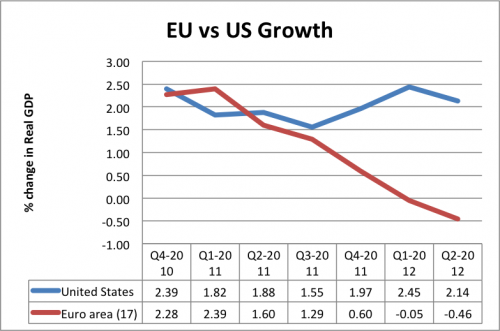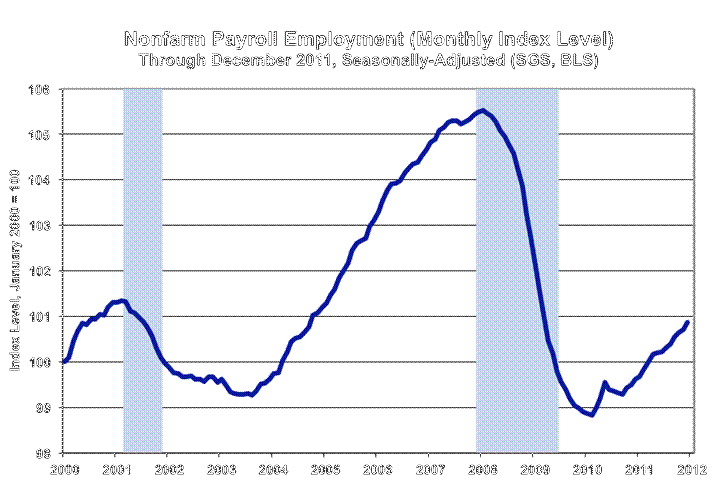Government policy and the US economy
Post on: 23 Июль, 2015 No Comment

(defn of policy: officially expressed intention backed by either a reward or a punishment)
- prior to 1929 there was little government intervention in the economy (consistent with Adam Smith)
- But the Great Depression convinced many Americans that it was the government’s job to provide job security and a host of New Deal programs that injected the federal government into banking, labor, working conditions, minimum wages, and other areas of the economy (After Sept 11 Congress wrote a $15 billion financial package to prop up the airline industry)
How does Gov make market economies possible?
Law and order – predictable and stable legal system
Defining rules of property – labor, ideas, real estate, concrete goods – what do you have control over/what do you not have control over
Enforcing contracts – Contracts must be legally enforceable of they are worthless
Governing rule of exchange – what can be sold? (not drugs, for example) when can things be sold? (egs. sometimes witnesses needed for agreements to borrow money)
Setting Market Standards – creating a standard for products (when can you call something “dark chocolate” or “fresh” or “organic” — weights and measures (to make sure a pound is a pound)
Providing Public Goods – providing facilities needed by economy – highways for trade – needed to avoid “free rider” problem
Creating a labor force – compulsory education laws, keep social benefits low enough to encourage work
Ameliorating externalities – means of regulating damaging behavior whose public costs exceed private costs – regulating pollution, worker safety law– free-riding (or the ‘tragedy of the commons’) needs to be controlled
Promoting competition – breaking up monopolies
Therefore the basis of government involvement in the economy: when the market fails then the government steps in
Three main goals of US economic policy
Maintaining public order and private property
Federal government regulates mail fraud, counterfeiting; but state law handles most business issues.
Private property a central value to Americans, but construction of roads and other public projects requires eminent domain (though the 5 th amendment requires due process and fair market value for compensation.
Maintain a strong economy
Encouraging business development – often through pork projects approved through logrolling
Creation of public roads, canals and subsidized railroads opened up markets
Subsidies today for farmers, land grants given to settlers and railroads
Contracting power – government can reward contracts aimed at promoting an industry (airline industry in the 1930s or equal employment opportunity in the 1960s)
What are the Goals, Tools, and Politics of Economic Policy?
Federalism and Public Order- no national police force, no national criminal law, no national common law, no national property laws. September 11=increased federal role is public order
Private Property- valued highly in US
Expropriation- confiscation of property with or without compensation (parks, highways, etc.)
Eminent Domain- the right of government to take private property for public use, with reasonable compensation awarded for the property.
Homesteading- A national policy that permits people to gain ownership of property by occupying public or unclaimed lands, living on the land for a specified period of time, and making certain minimal improvements on that land. Also known as squatting.
Promoting Business Development through Promotional Policies
Categorical Grants-in-Aid- Funds given by Congress to states and localities, earmarked by law for specific categories such as education or crime prevention.
Tools for Promotional Policy
Subsidies- governmental grants of cash or other valuable commodities such as land to individuals or organizations. Subsidies can be used to promote activities desired by the government, to reward political support, or to buy off political opposition.
Contracting
Contracting Power- The power of government to set conditions on companies seeking to sell goods or services to government agencies.
Promotional Policy and Logrolling Politics
Promotional Policy- Political actors seek to distribute funds and projects to their political to their political supporters.
Logrolling- A legislative practice wherein reciprocal agreements are made between legislators, usually in voting for or against a bill. In contrast to bargaining, logrolling unites parties that have nothing in common but their desire to exchange support.
Promoting Business Development by Regulating Competition
Antitrust Policy- Government regulation of large businesses that have established monopolies.
Deregulation- A policy of reducing or eliminating regulatory restraints on the conduct of individuals or private institutions.
Regulation- A particular use of government power in which the government adopts rules imposing restrictions on the conduct of private citizens.
Administrative Regulation- Rules made by regulatory agencies and commissions.
Regulatory Policy and Pluralist Politics
Dominated by interest groups, especially those interests that might be regulated by government.
Maintaining a Stable and Strong Economy

Monetary Policies- Efforts to regulate the economy through manipulation of the supply of money and credit. America’s most powerful institution in the area of monetary policy is the Federal Reserve Board.
Federal Reserve System- Consisting of 12 Federal Reserve Banks, the Fed facilitates exchange of cash, checks, and credit; it regulates member banks; and it uses monetary policies to fight inflation and deflation.
Discount Rate (or prime landing rate) — The interest rate charged by the Federal Reserve when the commercial banks borrow to expand their lending operations. An effective tool of monetary policy.
Reserve Requirement – The amount of liquid assets and ready cash that the Federal Reserve requires banks to hold to meet depositors’ demands for their money. The ratio revolves above or below 20% of all deposits, with the rest being available for new loans.
Open-Market Operations- The process whereby the Open Market Committee of the Federal Reserve buys and sells government securities and the like to help finance government operations and to loosen or tighten the total amount of credit circulating in the economy.
Federal Funds Rate- The interest rate on loans between banks that the Federal Reserve Board influences by affecting the supply of money available.
Fiscal Policies- The use of taxing, monetary, and spending powers to manipulate the economy.
Taxation
Progressive Taxation- Taxation that hits the upper-income brackets
Regressive Taxation- Taxation that hits the lower-income brackets
Policy Redistribution- An objective of the graduated income tax-to raise revenue in such a way as to reduce the disparities of wealth between the lowest and the highest income brackets.
Government Spending
Budget Deficit- Amount by which government spending exceeds government revenue in a fiscal year.
Mandatory Spending- Federal spending that is made up of “uncontrollables,” budget items that cannot be controlled through the regular budget process.
Uncontrollables- Beyond the power of Congress because the terms of payments are set in contracts, such as interest on the debt.
The federal budget can be divided into:
Discretionary Spending- Federal spending on the programs that are controlled through the regular budget process.
Entitlements – Federal social spending that workers/retirees/disabled/ have been promised by the government through social security, medicare, or other programs
Interest payments – Payments on the federal debt
The Politics of Redistributive Policy
Reflect the interests of elected leaders in getting re-elected.
Power-elite theory – the decisions of the affluent are what guides the society
Pluralistic theory – Decisions are made as part of a near-constant conflict between groups, with no one group winning consistently














